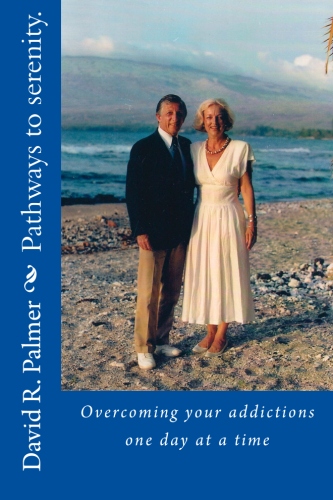By David Palmer
Let us agree at the outset that the United States has a huge substance abuse problem.
“On any given day,” Joseph A. Califano Jr. writes in his book High Society, “100 million Americans are taking some stimulant, antidepressant, tranquilizer or painkiller; smoking; inhaling from aerosol cans or glue bottles; or self-medicating with alcohol or illegal substances like marijuana, cocaine, heroin, methamphetamines, hallucinogens, Ecstasy and other designer drugs.
“Chemistry,” Califano says, “is chasing Christianity as the nation’s largest religion.”
So what’s to be done about it?
As a former abuser of drugs (mainly alcohol), I can tell you what I did. Simply put, 32 years ago I put the plug in the jug and began attending Alcoholics Anonymous, a spiritually based program of recovery. I also got some psychiatric help for depression and anxiety, and began cleaning up the wreckage of my past and sponsoring people. Later, I was baptized in the Arkansas River and helped launch a Celebrate Recovery meeting at Fellowship Bible Church.
My story is not unique. Millions of others over the years have achieved a level of happiness they never dreamed possible. Scars remain but most of the time life for me is deeply satisfying,
Eight years ago, at age 75, I quit my day job and started a quarterly non-profit newspaper, One Day at a Time, “presenting a message of hope and recovery to a nation in need.” I had been a reporter and a publisher of daily and weekly newspapers during my career, and I knew something about the business.
In the beginning, I had three specific goals in mind:
First, I wanted to expand my knowledge of addiction and recovery to help a grandson who had almost died in a drug related automobile accident.
Second, I thought the recovery story had been under-reported by the media. There are plenty of celebrities out there who have gotten sober and lead exemplary lives. Where are the thrilling stories of people and families who get over their addictions and set an example as sober and productive citizens? I wanted to tell these stories.
Third, I believed making a difference had to begin at the grassroots level with families, neighborhoods, and communities. National campaigns are fine, but recovery, I believe, begins mainly through local institutions, programs and relationships. That’s why I began by publishing a local paper in Little Rock which is my home.
In the 1990’s the Robert Wood Johnson Foundation (RWJF) awarded roughly $45 million in a series of grants to fifteen communities, including Little Rock. The “Fighting Back” project raised awareness in the community and produced a number of initiatives, but city hall dropped the ball, failed to renew its grant and “Fighting Back” is largely forgotten.
Little Rock’s compelling grant proposal was written by Frankie Sarver, wife of the late Bob Sarver, Arkansas Commissioner of Corrections during the Winthrop Rockefeller administration. It was spot on. Sarver said, “People and communities—whose behaviors are partly defined by fear, denial, hopelessness, and passivity—are dysfunctional in the same ways. “The disease of substance abuse,” she said, “affects an entire city much the same as the disease affects its individual residents. Denial prevents its identification, and an unwillingness to deal with the problem and blaming others prevent recovery.”
So what have I learned after eight years of publishing One Day at a Time? Six conclusions readily come to mind:
- Reducing substance abuse is a worthy cause. Substance abuse kills, sickens, disables, destroys marriages and families, and imposes a huge financial burden on our economy. Some call it the number-one health problem in the nation.
- Recovery is not just for alcoholics and drug addicts. There are many kinds of destructive addictions. Addiction is widespread and, by some definitions, universal (i.e., “sin” is an addiction and everybody sins).
- Momentum is growing in the fight against substance abuse and other addictions. Churches and other faith-based institutions are increasingly confronting addictions of all kinds and offering programs of recovery. Universities are doing groundbreaking research. Hospitals and other caregivers are developing new treatments.

- People who are informed are better able to deal with addictions. People who know about the scope and consequences of substance abuse, who discover where to get help, who see how other people recover, and who learn about the availability of both secular and spiritual resources have the best chance of avoiding addictions or recovering from them, and can go on to help others who are fighting the same battle.
- Education about addictions should begin early, in the home. Teenagers whose parents talk to them regularly about the dangers of drugs are much less likely to use drugs than those whose parents don’t, yet only one in four teens reports having these conversations.
- When substance abuse is reduced, communities benefit. In healthy communities, workforces become more productive and costs associated with healthcare, crime, accidents, homelessness, and incarceration go down. And with every success, individuals and communities develop more courage and the will to act boldly.
Dr. Kitty S. Harris, director of the Center for the Study of Addiction and Recovery and Center for Prevention and Resiliency at Texas Tech University, put it
beautifully in a recent article: “Instead of a goal of simply abstinence, we are advocating the goal of a totally transformed life. A life free from addiction and filled with opportunities for full and complete participation in society.”
The War on Drugs is not working. Last year the UN Global Commission on Drug Policy capitulated stating that “The global war on drugs has failed with devastating consequences for individuals and societies around the world.”
I agree that trying to stop the supply lines of drugs which extend into the very classrooms of our schools is won’t work. Our goal at One Day at a Time is to help dry up demand by offering a better life.
Editor: David Palmer and his wife Joan have three sons and seven grandchildren. David is a graduate of Harvard (MBA) and Hamilton College (BA) and served in the US Navy. He is the author of a new e-book, “Pathways to Serenity. Overcoming your addictions One Day at a Time” which is available on Amazon.





Speak Your Mind